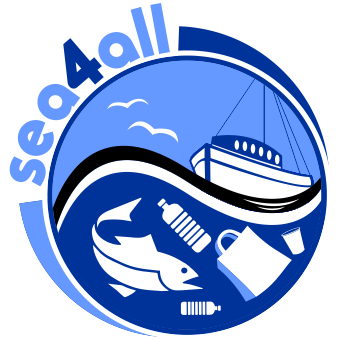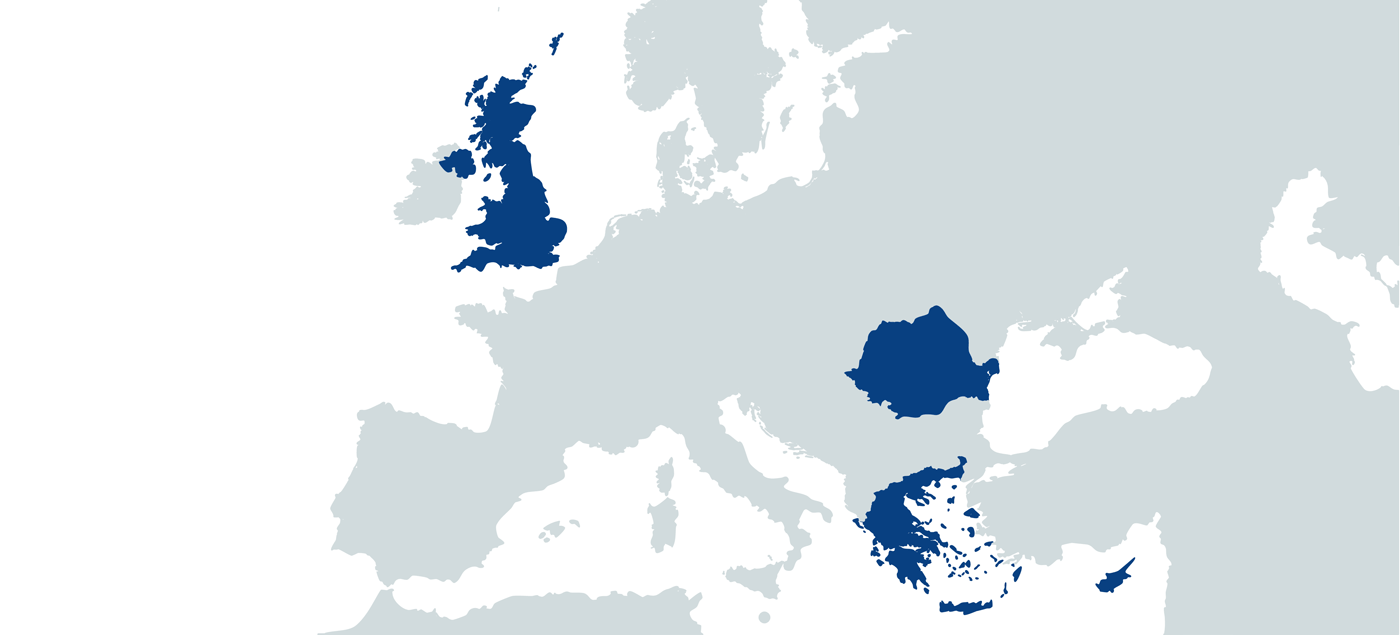
Partners

country: GR
Foundation for Research and Technology – Hellas
The Foundation for Research and Technology – Hellas (FORTH) is one of the largest research centres of Greece with well-organized facilities and highly qualified staff. It functions under the supervision of the General Secretariat for Research and Technology of the Hellenic Ministry of Education. The Foundation, with its high quality research results as well as its valuable socioeconomic contribution, makes it one of the top research centres internationally. The Institute of Computer Science (FORTH-ICS), one of the six institutes of FORTH, has a relatively long history and recognized tradition, since its establishment in 1983, in conducting basic and applied research, developing applications and products, providing services, and playing a leading role in Greece and internationally, in the fields of Information and Communication Technologies. Our activities cover important research and development areas, taking into consideration new perspectives, emerging fields of research and technological challenges worldwide. The Computational BioMedicine Laboratory (CBML) of FORTH focuses on the development of novel ICT technologies in the wider context of personalized, predictive and preventive medicine aiming at the optimal management of chronic diseases. Its research activities focus on the development of innovative computer methods and tools in the area of medical and biomedical informatics, ehealth, m-Health, medical imaging and bioinformatics. Recently the lab is also focusing its R&D activities on health early warning, emergency management and geolocalization systems. It has been engaged in the SAFE civil protection exercise in 2007 (20 organisations/300 volunteers), EU POSEIDON 2011 – exercising the activation of the EU civil protection mechanism and was the Coordinator of the NEREIDs project concerning development of ICT learning tools and training in marine pollution and civil protection issues. Lately, CBML is engaged in the PACES project (Preparedness for Appropriate accomodation in Emergency Shelters), also funded by the EU Civil Protection Financial Instrument.

country: GR
REGIONAL DIRECTORATE OF PRIMARY AND SECONDARY EDUCATION OF CRETE
The Ministry of Education, Research and Religious Affairs formulates and implements legislation, administers the budget, coordinates and supervises its decentralized services, approves primary and secondary school curricula and appoints teaching staff. There are thirteen Regional Education Directorates under the Minister of Education implementing educational policy and linking local agents to central services and organizations. They are responsible for the administration and supervision of other decentralized services in their area, as well as for the coordination of local School Advisors. Each Regional Education Directorate consists of the following: a) An Administration Department b) A Department of Pedagogical Guidance for Primary Education and c) A Department of Pedagogical Guidance for Secondary Education The following services come also under the respective Directorates : 1. The Regional Further Education Centres (PEK) 2. The Centres of Differential Assessment, Diagnosis and Support of Special Education Needs (KEDDY) 3. Regional Support and Educational Planning Centres (PEKESES) 4. Environmental Education Centres (KPE) 5. Pre-Primary, Primary, Special and Secondary Education Advisors Regional Directorate of Primary and Secondary Education in Crete, is a large educational organization in Greece which is responsible for schools and teachers in four Prefectures, Heraklion, Rethimnon Chania and Lasithi. It is in charge of 1100 schools of both levels of education : • Primary Education : 866 schools • Secondary Education : 234 schools 117 junior high schools, 74 high schools, 43 vocational schools. Also a number of 12445 teachers of all disciplines work in these schools : • Primary Education : 6460 teachers • Secondary Education: 5985 teachers The total number of students in the region of Crete is 98.552 : • Primary Education : 54.065 students • Secondary Education : 44.487 students The main task of Regional Directorate is to co-ordinate, supplement, back up and implement the educational policies of the Ministry, along with supervising the implementation of various education projects, like European projects, in schools. A new Partner Search Database according to the new guidelines of the Erasmus+ programme has been created by the people working in the European projects of the Regional Directorate and it’s available at the address http://kritis.pde.sch.gr/euprogrammes/partnerdb. It is a web application designed to assist organizations, looking for Erasmus+ projects, and it is open to any organization from the countries participating in the programme, offering lots of opportunities in establishing creative partnerships.
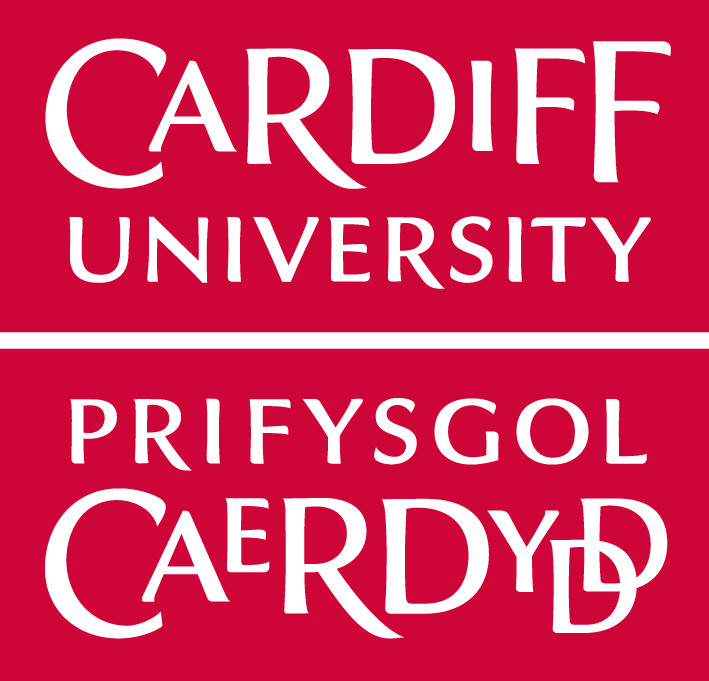
country: UK
CARDIFF UNIVERSITY
The Cardiff University was founded in 1883 , and is established as one of Britain’s leading research universities. The quality and impact of Cardiff’s research has led to a meteoric rise in the Research Excellence Framework (REF), pushing it into the UK’s top 5 universities. CU was also ranked as the 2nd university nationally based on the impact of research which tackles major challenges facing society, the economy and the environment. CU is part of the Russell Group of 24 leading research intensive UK universities. The research staff are world-class and include Nobel Laureates, Fellows of the Royal Society and members of other prestigious institutions. The research expertise and facilities are used by industry and commercial partners, government bodies and other organisations internationally. CU helps to generate business ideas and spin-out companies and contribute to economic growth and job creation in Wales and beyond. CU has research contracts of total value of £500M. We have created major Research Institutes to pursue new scientific approaches to some of the world’s most pressing concerns. The School of Earth and Ocean Sciences was established in 1891. Located in the University’s iconic Main Building in the heart of Cardiff’s civic centre of Cardiff, we neighbour the National Museum of Wales, with its geological collections. The School is divided in three main groups (Solid, Living, Changing) and has accumulated renowned experience in oceanographic, geological, geochemical and environmental studies. There is also an important focus on collaborating with industry, and in the sustainable exploration (and exploitation) of Earth’s economic resources. The School of Earth and Ocean Sciences excels in teaching and research, providing a supportive and inspiring place to learn about the evolution of the Earth, its life and how it works. The School includes a staff of more than 55 academics, including two Fellows of the Royal Society. The current Head of School is Professor Ian Hall. Cardiff University is one of twelve universities from across the UK who have been funded by Research Councils UK (RCUK) as part of their School-University Partnerships Initiative (SUPI). The SUPI aims to create structured and strategic mechanisms for Higher Education Institutes (HEIs) to work in partnership with secondary schools and FE colleges. This partnership working will support researchers’ direct engagement with students and bring contemporary and inspirational research contexts into formal and informal learning to enhance and enrich the curriculum. (http://www.rcuk.ac.uk/pe/PartnershipsInitiative/.) The CUSP project is working with existing partner schools and Cardiff University School Engagement projects as well as linking with the Central South Consortium Joint Educational Services. The project aims to: critique Cardiff University’s existing provision of engagement for schools; fund the development of new, or improve and enrich existing, activities; provide opportunities for teachers and the University to share and support teaching and learning; develop the skills of University staff and students; explore the University’s opportunities to support young people who are not in education, employment or training; to develop infrastructure to support partnership working. The Curriculum Support site has been developed as part of the CUSP project. The site aims to improve how the University communicates its school engagement programme to its external audiences. The site was developed following consultation with teachers as part of the new Teacher Advisory Panel (TAP) approach being piloted across the University. The TAP approach allows the University to work in partnership with teachers to ensure that all developments address the needs of both schools and the University. The Curriculum Support site is designed to allow teachers to search the full range of curriculum linked engagement activities by key stage, curriculum subject, type of activity and Academic School. In addition to curriculum linked activities, the programme search allows teachers to link directly with the full range of school outreach programmes that the University offers. These include those activities and events aimed at encouraging students to aspire to and prepare for higher education as well as those linked to research institutes and other partner organisations.
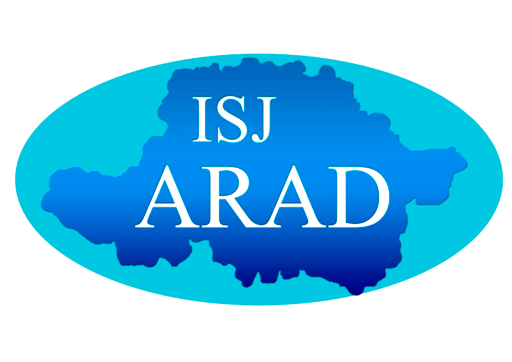
country: RO
Arad County School Inspectorate
Arad County School Inspectorate is an institution at the service of community that offers specialized consulting services and continuing professional development programs. Arad County School Inspectorate provides the framework for personal and professional development for all the educational staff in the county, promoting innovation and pro-reforming policies. At the same time, Arad County School Inspectorate militates for the respect of the students’ rights and interests, according to the law in force, while ensuring, through specific means, their safety, as well as their physical, intellectual and spiritual development. Arad County School Inspectorate is committed to pursuing equity in education and to guaranteeing equal opportunities and free competition in order to attain quality education in the services it provides. Arad County School Inspectorate supervises 143 schools ( out of which 67 are in urban area while 76 are in rural areas), 5428 teaching staff and 63000 students. Arad County School Inspectorate applies the policies and strategies of the Ministry of the National Education and Scientific Research (MENCS), monitors the quality of the teaching-learning activities according to national standards; controls, monitors and assesses the quality of school management ; co-ordinates school-entrance, national evaluations, school leaving examinations (the Baccalaureate) and school competitions; mediates the conflicts between schools and local public administration/ municipality; co-ordinates all teaching staff movement and examinations. Arad County School inspectorate has to control and verify if law and legal norms regarding curriculum are applied; organize and conduct school inspections; organize and conduct national examinations at all levels according to MENCS; control, advise and assess teachers’ activity; offer consultancy regarding school management; apply the national policies regarding human resource; organize and conduct examinations for teachers; ensure the necessary human resource in schools; identify the needs of teaching staff; monitor and assess training programs and their impact upon teaching activities. Arad County School Inspectorate has as priorities: the quality standards in education; equal access to education; ensuring resources in education; internationalization – increasing the European dimensions, complementarities of extracurricular activities to school education. Arad County School Inspectorate promotes universal values, rights and fundamental freedoms, such as: freedom of thought and expression, freedom of association, respect of individuals and individuality, the right to (intellectual) property and the right to equal opportunities. The organizational culture of the institution relies on these values, both in concept and in practice, thereby considering change as a potential force of improvement, implementing risk – taking as part of management and progress, taking into account diverse opinions to identify the best solutions, as well as acknowledging performance, personal involvement and interest in the work done. Arad County School Inspectorate aims at increasing its credibility in the public eye, while taking responsibility for its actions and promoting transparency and professionalism in decision making. Our values and standards are respect of individuality, the right to equal chances, the right to intellectual property, freedom of knowledge, thought and speech, change as a potential force of improvement, professionalism in decision making, risk–taking as part of management and progress, increasing credibility in the public eye. Quality assurance in school education is regulated by Ministerial ordinance no.75/2005. Starting with the 2006-2007 school year every school in Romania implemented a quality assurance system and passed to the application of assessment methodologies and external quality assurance in accordance with it. Thus it will be easy to implement in schools the novelties and the new in schools, the final targets being the teacher and the student to benefit from the work in the present project.
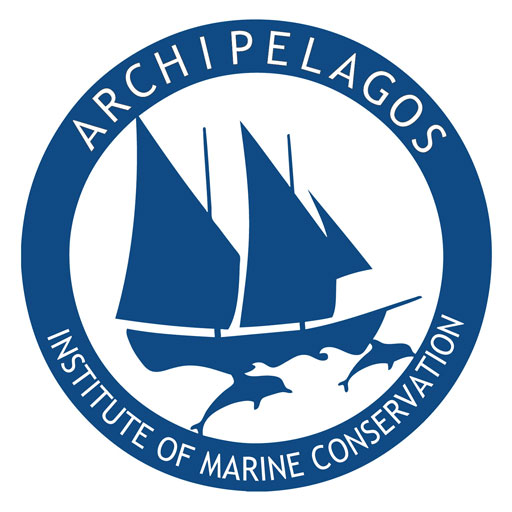
country: GR
Archipelagos
Archipelagos, Institute of Marine Conservation is a Greek non-profit, non-governmental organization founded in 2000. Archipelagos is committed to researching and defending the biodiversity of the Greek seas and islands, as well as of the NE Mediterranean region overall. Archipelagos’ work focuses on a combination of multi-disciplinary scientific research with efficient conservation work, in which the local communities share an active part. This work creates a strategic foundation that enables and strengthens Archipelagos’ campaigns at a local, national and EU level, to defend the rich biodiversity of the eastern Mediterranean from the impacts increasingly threatening it. One of the main fields of actions of Archipelagos Institute is marine wildlife conservation. This work covers a wide range of fields including: marine mammal research and conservation, research on fisheries management, development of fisheries co-managed areas, research on coastal ecosystems with a focus on endangered habitats and species as well as on the assessment of the erosion phenomena and coastal zone management, research on sustainable aquaculture practices, oceanographic research, marine pollution assessment, shipping disaster prevention and other. In parallel with the research and conservation work, Archipelagos Institute also hosts year-round students and young scholars from a wide range of disciplines in our 7 research bases in the Aegean islands, who join us to support our efforts to protect the environment. Since 2001, our educational activities have hosted over 2,500 participants from around the world, in the framework of Erasmus, Leonardo, Youth, Fullbright and other related projects. Archipelagos has two main research bases on the island of Samos, while 6 smaller research stations are located on other islands of the eastern Aegean. Research activities are carried out with the use of 2 appropriately equipped boats. Staff varies from 7 – 15 members (seasonal variation according to the number of the projects that run).
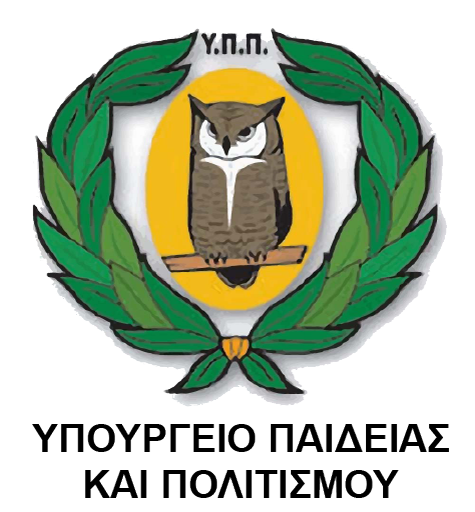
country: CY
Cyprus Pedagogical Institute
The Cyprus Pedagogical Institute (CPI) is a Department of the Ministry of Education and Culture aiming at meeting the raising needs of the teachers in all levels of Education. The pedagogical Institute is an institute of Education and has a developmental mission which covers all the levels of education. The institutes’ main activities are professional teacher training in all educational levels (pre-primary, primary. secondary, VET), educational research and evaluation, educational documentation, educational technology, curriculum development and promotion of innovations and new fields in education as Environmental Education, Education for Sustainable Development, Multicultural education and Active Citizenship. Since 2004 an Environmental Education Unit was established in CPI aiming to promote effectively environmental and sustainable development issues in formal, non-formal and informal education. Its main actions are the teachers and leaders in-service training in Environmental Education (EE), and Education for Sustainable Development (ESD), the school base seminars, the implementation in schools various National and International EE and ESD programs, the development of teaching materials for EE and ESD, the research in ESD, the coordination of the network of Environmental Education Centre, the infusion of ESD in national curriculum and the participation and networking in various international projects. Environmental Education Unit supported by 17 experience people in EE and ESD. Formal education is structured horizontally in order to promote ESD issues in all educational levels in a unified way. Especially and according to the new directions of Education and Training 2020, the Environmental Education Unit of CPI is working in order to provide students with ESD competences. For this reason, it is in close cooperation with the stakeholders from the public and private sector, NGOs, Universities, trade markets in order to offering to the students opportunities for combining theory with praxis in ESD issues and professions. For that purpose and in cooperation with various organizations a series of seminars were conducted addressing teachers from all educational levels in real for ESD. Additionally, educational tools which can applied be outdoors, were prepared focusing on ESD issues.

country: CY
UNIVERSITY OF CYPRUS
The Oceanography Center University of Cyprus (OC-UCY) conducts basic and applied research in the fields of ocean physics and dynamics, remote sensing, operational oceanography, biological and chemical oceanography, environmental assessments, dedicated ocean and marine data and meta databases and information systems.The center targets its research on operational ocean forecast, oil spill detection and predictions, satellite and in-situ marine monitoring, data management of marine information and emergency planning.The is involved in various EU funded research projects regarding ocean forecasts, applications and data management. It currently employs a team of 10-15 research scientists and collaborators amongst which oceanographers, data managers and IT professionals.
